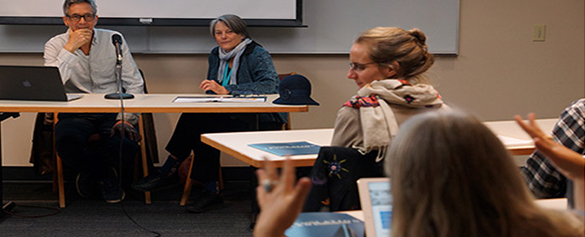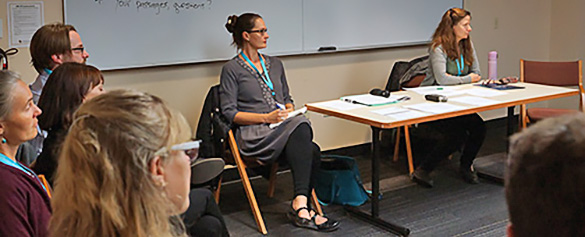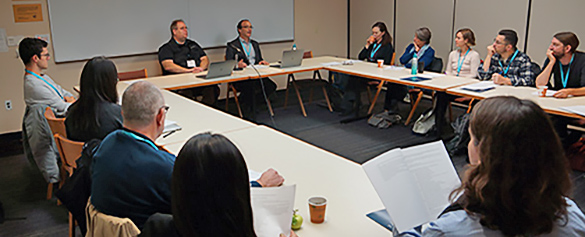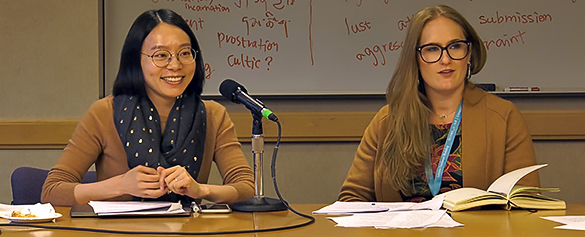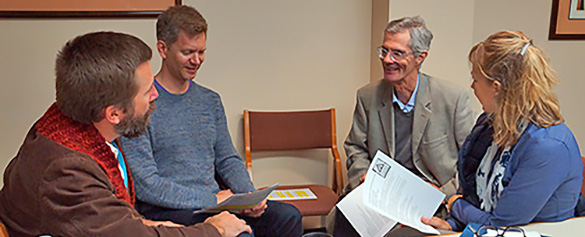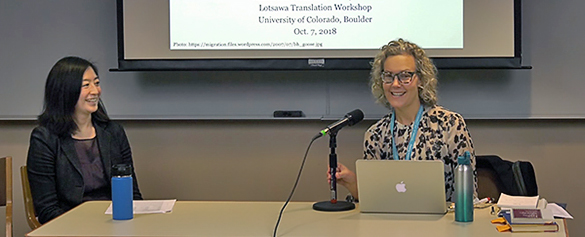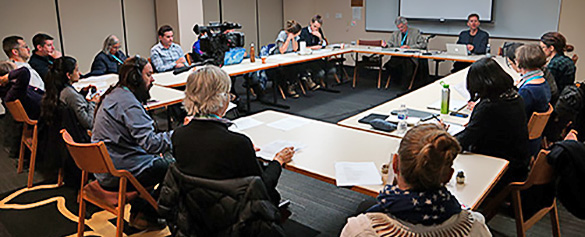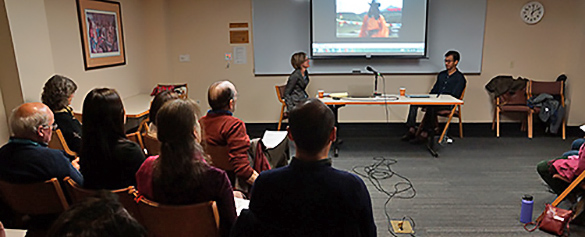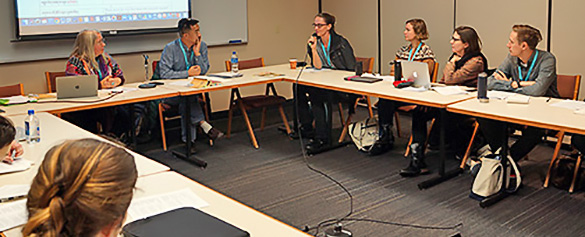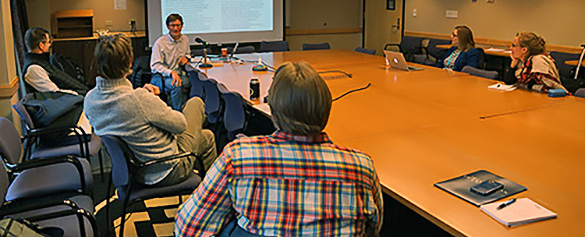Uncontrived Elegance in Tibetan Songs
Migmar Lama2022-11-16T23:40:42-07:00John Canti (Padmakara, 84000) and Sarah Harding (Tsadra Foundation) explore “uncontrived elegance” in poetry and song in Tibetan literature. Compared to the purportedly spontaneous composition of the original, is a translation ever uncontrived? John draws on examples from Dudjom Lingpa and Shabkar to illustrate the possibilities of translation and the evocative dimensions that can be expressed based on the source literature. Sarah suggests that a smooth, readable translation, facilitating ease of comprehension, may be the best we can do. After a lively discussion, Sarah leads the group in translating a short line of text to illustrate their points.

